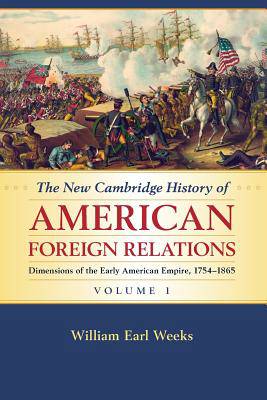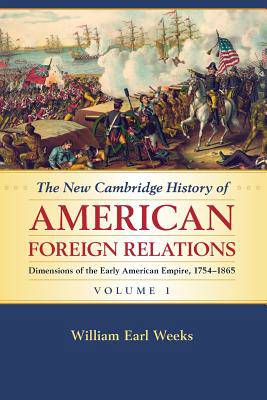
- Afhalen na 1 uur in een winkel met voorraad
- Gratis thuislevering in België vanaf € 30
- Ruim aanbod met 7 miljoen producten
- Afhalen na 1 uur in een winkel met voorraad
- Gratis thuislevering in België vanaf € 30
- Ruim aanbod met 7 miljoen producten
Zoeken
Omschrijving
Since their first publication, the four volumes of the Cambridge History of American Foreign Relations have served as the definitive source for the topic, from the colonial period to the Cold War. This entirely new first volume narrates the British North American colonists' preexisting desire for expansion, security, and prosperity, and argues that these desires are both the essence of American foreign relations and the root cause for the creation of the United States. They required the colonists to unite politically, as individual colonies could not dominate North America by themselves. Although ingrained localist sentiments persisted, a strong, durable Union was required for mutual success, thus American nationalism was founded on the idea of allegiance to the Union. Continued tension between the desire for expansion and the fragility of the Union eventually resulted in the Union's collapse and the Civil War.
Specificaties
Betrokkenen
- Auteur(s):
- Uitgeverij:
Inhoud
- Aantal bladzijden:
- 338
- Taal:
- Engels
- Reeks:
Eigenschappen
- Productcode (EAN):
- 9781107536227
- Verschijningsdatum:
- 16/04/2015
- Uitvoering:
- Paperback
- Formaat:
- Trade paperback (VS)
- Afmetingen:
- 152 mm x 229 mm
- Gewicht:
- 494 g

Alleen bij Standaard Boekhandel
+ 112 punten op je klantenkaart van Standaard Boekhandel
Beoordelingen
We publiceren alleen reviews die voldoen aan de voorwaarden voor reviews. Bekijk onze voorwaarden voor reviews.











